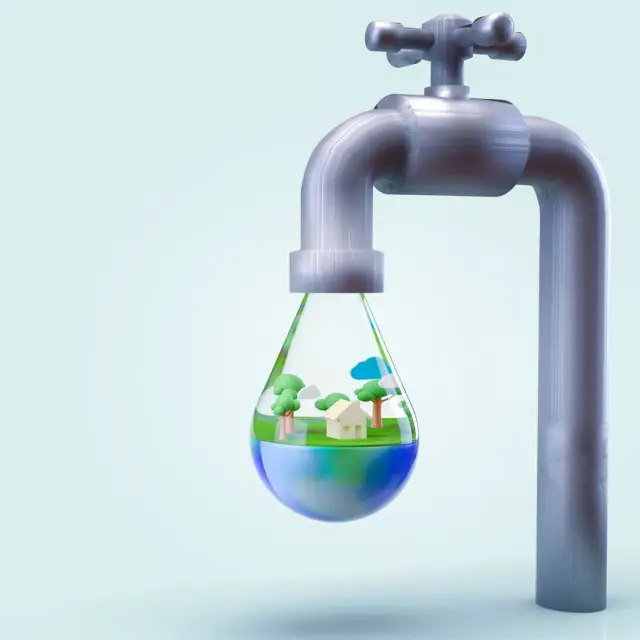World Water Day is celebrated every year on March 22, and represents a key date to reflect on the importance of the most vital resource for life on Earth: water. Proclaimed by the United Nations General Assembly in 1993, this day seeks to raise awareness about the global water crisis and promote measures to ensure equitable and sustainable access to this essential resource.
The Importance of Water
Water is essential to every aspect of life. Not only does it make up around 60% of the human body, it is also critical for food production, energy generation, industry, biodiversity and maintaining ecosystems. Yet despite its importance, many communities around the world face severe water shortages or lack access to safe drinking water.
Global Water Statistics
According to the UN World Water Development Report 2023:
2.2 billion people do not have access to safely managed drinking water services.
4.2 billion people lack safe sanitation facilities.
Around 80% of the world's wastewater is released into the environment without adequate treatment.
These figures show the magnitude of the problem and underline the need for urgent and effective action.
History and Purpose of World Water Day
World Water Day was established during the United Nations Conference on Environment and Development (Earth Summit) in 1992. Each year, this day focuses on a specific theme related to water, allowing different aspects of its management and conservation to be addressed. Some recent themes include:
2021 : “Valuing water”
2022 : “Groundwater: making the invisible visible”
2023 : “Accelerating change”
The main objective is to inspire concrete actions, foster international cooperation and increase the commitment of governments, organizations and citizens to address water-related challenges.
Water Challenges in the 21st Century
Climate Change and Water Scarcity
Climate change is exacerbating the water crisis in many parts of the world. More frequent and intense droughts, floods and variability in rainfall are affecting the availability and quality of water. For example, melting glaciers due to global warming are putting at risk the water resources of entire regions that depend on them as a primary source.
Water Pollution
Pollution of rivers, lakes and groundwater by industrial waste, pesticides and untreated wastewater is another critical problem. The lack of strict regulations in many regions contributes to the deterioration of water quality, which affects not only aquatic ecosystems but also human health.
Unequal Access
Inequality in access to water is also a worrying issue. While in developed countries drinking water is a guaranteed resource, millions of people in developing nations must walk long distances to collect water, often from unsafe sources. This perpetuates the cycle of poverty and limits development opportunities.
Solutions and Necessary Actions
Innovative Technologies
Technology plays a crucial role in solving the water crisis. Innovations such as portable water treatment systems, efficient desalination and water monitoring apps are transforming the way we manage this resource. In addition, artificial intelligence-based tools are helping to predict droughts and manage resources more effectively.
Education and Awareness
Education is key to changing the way people perceive and use water. Awareness campaigns and educational programs can empower communities to adopt sustainable practices, such as water conservation and recycling.
Policies and International Cooperation
Governments have a responsibility to implement effective water management policies. This includes improving infrastructure, establishing strict regulations to prevent pollution, and fostering international cooperation in shared watersheds.
Community Participation
The role of local communities in water management is fundamental. Many successful initiatives have shown that the active participation of communities in water projects, such as the construction of wells or the restoration of aquatic ecosystems, can have a significant and lasting impact.
Success Stories
Despite the challenges, there are encouraging examples of sustainable solutions around the world. In Chile, for example, fog harvesting in arid regions has proven to be an innovative and effective strategy to ensure water supply to rural communities. Elsewhere, such as India, rainwater harvesting initiatives have significantly improved water security in drought-prone areas.
How You Can Contribute
Every person can make a difference in the fight for a sustainable water future. Some simple actions include:
Reduce water consumption at home by using taps and showers efficiently.
Avoid food waste, since its production consumes large amounts of water.
Support initiatives and organizations working for universal access to drinking water.
Participate in volunteer activities related to the protection of local water bodies.
World Water Day is much more than a commemorative date; it is a reminder of the importance of caring for and managing this finite and essential resource. The water crisis is a global problem that requires global solutions, but it also calls for individual action. It is in our hands the possibility of building a future in which water is a guaranteed right for all people and a protected resource for future generations.
